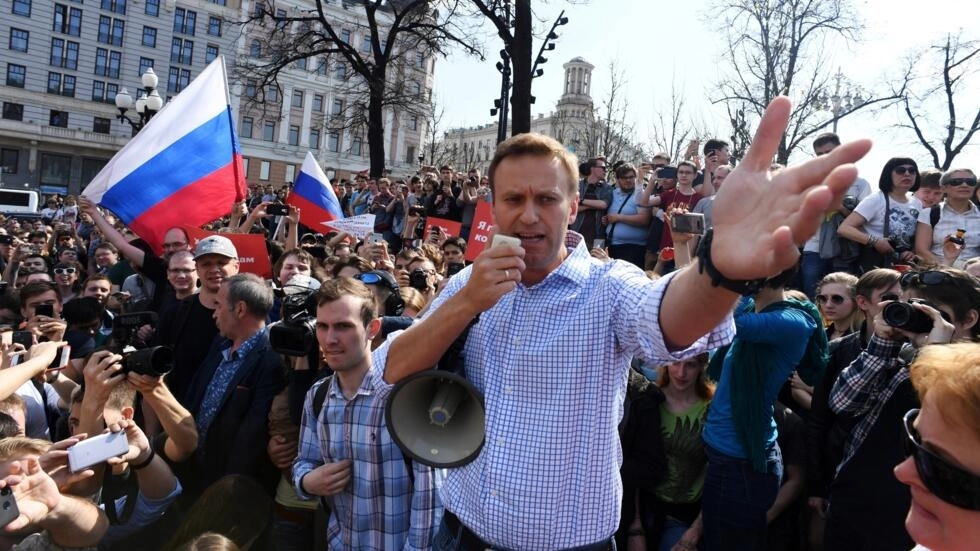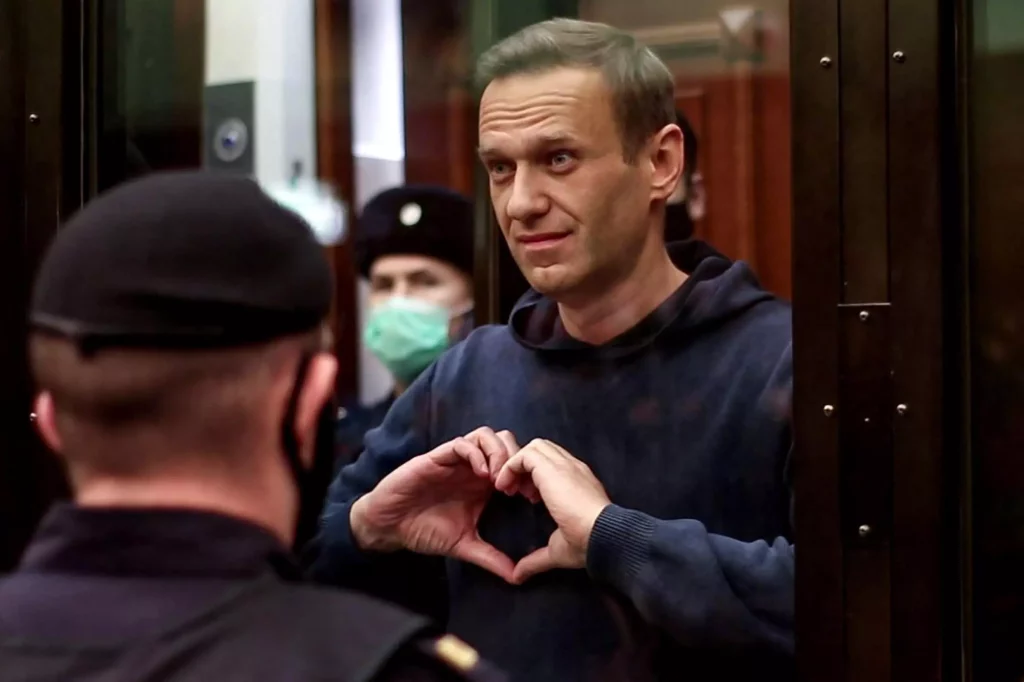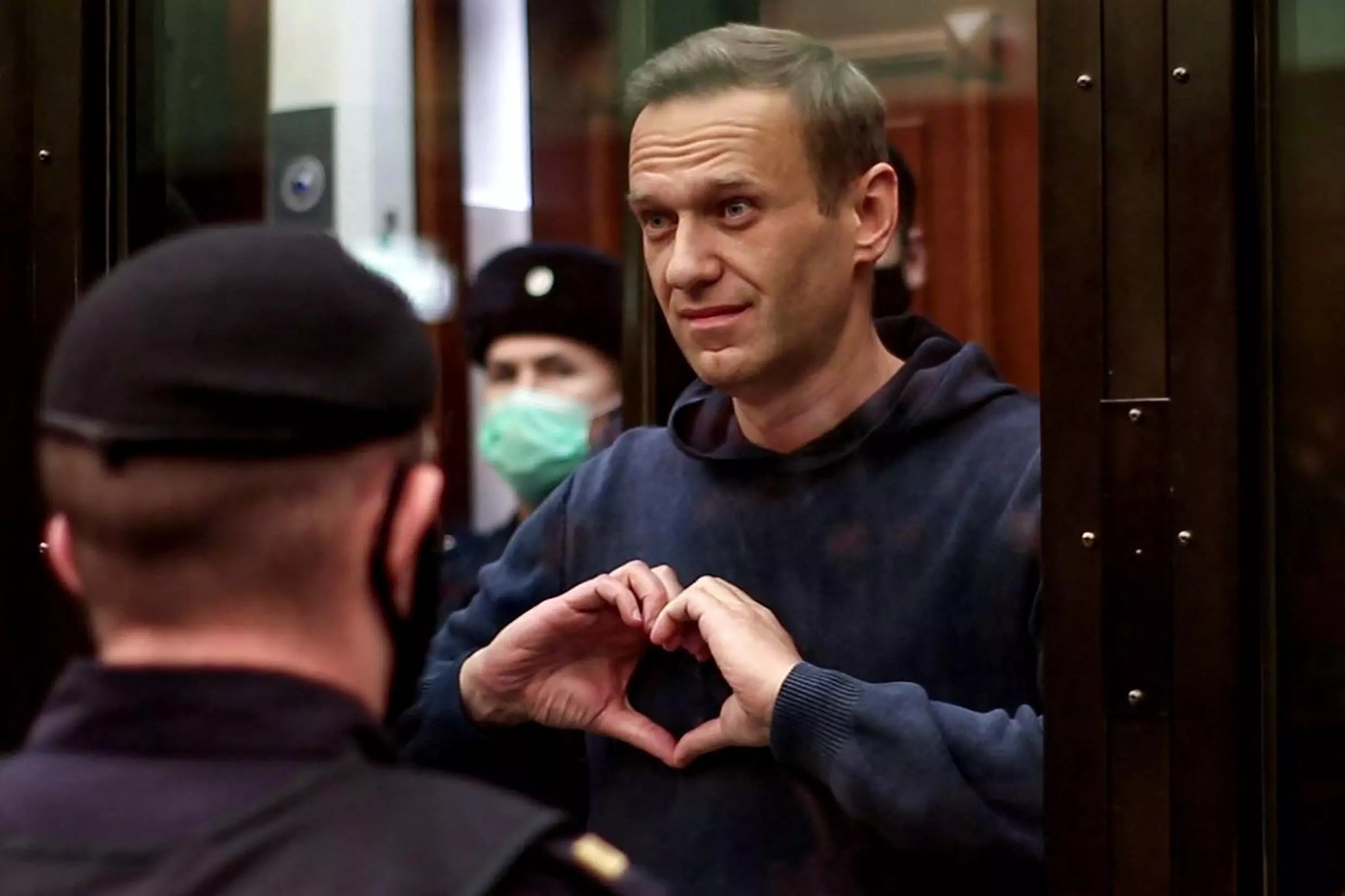Anti-corruption campaigner Alexei Navalny, whose death in a remote Arctic prison was announced on Friday, was long the most prominent face of Russian opposition to President Vladimir Putin.

Long a thorn in Putin’s side, Navalny was so loathed by the Kremlin leader that he refused to mention him by name.
The 47-year-old was for over a decade Putin’s most vociferous critic, running against the long-time ruler in 2018 and frequently blasting what he perceived as rampant corruption under his watch.
Part of a class of younger leaders seeking democratic change after years of post-Soviet oligarchy, Navalny leveraged fatigue with the Kremlin to gain millions of followers on social media.
He continued to defy Putin even as most other dissidents fled abroad.
But after returning to Russia from Germany, where he had been recovering from a near-fatal poisoning attack that he said was orchestrated by the Kremlin, Navalny was locked up in 2021.
During his time behind bars, he appeared in grainy videos from makeshift court hearings, directing much of his criticism at the offensive in Ukraine and its human toll.
His message – relayed to fans through social media content – contrasted dramatically to that of Putin, a Soviet-styled, 71-year-old former KGB agent who has ruled for over 20 years.
Russia, Navalny said, was “floundering in a pool of either mud or blood, with broken bones, with a poor and robbed population, and around it lie tens of thousands of people killed in the most stupid and senseless war of the 21st century.”
His criticism, which resonated with thousands of young supporters, proved a source of irritation for a Kremlin that rights groups have accused of wiping out dissent by any means necessary.
His death will only exacerbate these concerns.
A fearless opponent
Navalny, regarded in the West as Putin’s most credible challenger, had campaigned across the country to be president, published corruption investigations that embarrassed the Kremlin and rallied massive crowds onto Russia’s streets.
His return to Russia in January 2021 despite facing jail put him on a collision course with Putin, after Navalny blamed his poisoning attack in Siberia on the Kremlin.
“I’m not afraid and I call on you not to be afraid,” he said in an appeal to supporters as he landed in Moscow, moments before being detained on charges linked to an old fraud conviction.

His arrest spurred some of the largest demonstrations Russia had seen in decades, and thousands were detained at rallies nationwide calling for his release.
Weeks later, Navalny’s team countered Putin with the release of “Putin’s Palace”, an investigation into a lavish Black Sea mansion that his team claimed was gifted to Putin through corruption.
The revelations forced a rare denial from Putin, who quipped that, if his security services had really been behind the poisoning, they would have finished the job.
The Kremlin critic’s daring opposition earned him the EU’s Sakharov Prize for human rights, awarded later that year.
An earlier Navalny corruption video targeting then prime minister Dmitry Medvedev spurred large demonstrations in 2017, with protesters carrying rubber ducks that became a symbol of the protests.
Ahead of a presidential election in 2018, Navalny toured cities across the country to drum up support but was barred from running because of the old fraud charge.
“(Putin) fears me and he fears the people I represent,” he told AFP at the time.
Before that, he had challenged Sergei Sobyanin to become Moscow mayor, securing a significant chunk of support and blasting an unfair election for his loss.
‘You cannot shut my mouth’
At rallies and in courtrooms, Navalny was a convincing public speaker and rallied protesters around home-grown slogans like “the party of crooks and thieves” to slam the ruling United Russia party.
But he was tainted by an early foray into far-right nationalism, and a pro-gun video from 2007 routinely resurfaced in which he compared people from the ex-Soviet South Caucasus region to cockroaches.
Navalny also remained a fringe figure for a large portion of Russian society, who back the Kremlin’s official portrayal of him as a Western stooge and convicted criminal.

He had become such a thorn in the Kremlin’s side that Putin refused to pronounce his name in public. His anti-corruption group was shuttered and his top allies are either imprisoned or in exile.
Navalny’s team said he had been harassed in prison and repeatedly moved to a punitive solitary confinement cell.
He said guards had subjected him and other inmates to “torture by Putin”, making them listen to the president’s speeches.
Still, Navalny was upbeat and sardonic on social media accounts curated by aides, even despite his conditions.
The lawyer by training had fought for basic rights and taken prison officials to court. He had also tormented them, filing formal requests for a kimono and a balalaika – a traditional musical instrument – and to be allowed to keep a kangaroo.
“You cannot shut my mouth,” he declared.
Asked in the 2022 film, titled “Navalny”, what his message would be for the Russian people in case he were killed, he replied: “Don’t give up. You mustn’t, you can’t give up.
“All it takes for evil to triumph is for good people to do nothing. Therefore, don’t do nothing.”
(FRANCE 24 with AFP)


